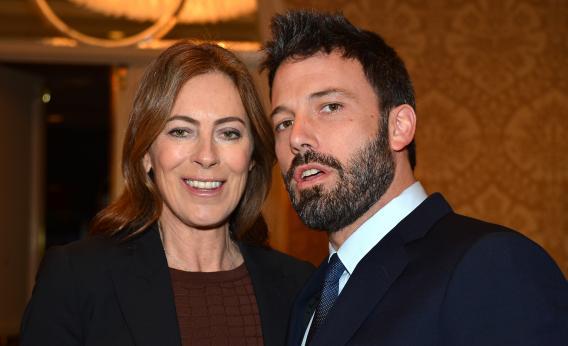Almost a week after Oscar nominations were announced, the snubs of expected directing shoe-ins Ben Affleck and Kathryn Bigelow continue to bother some members of the academy. (Affleck’s wins at the Golden Globes have likely fueled their sense of injustice.) While their anger would seem to be futile at this point, Scott Feinberg and Stephen Galloway at the Hollywood Reporter have suggested that they could channel it in a useful direction, by pushing for a write-in campaign. Do the Oscars allow for write-in votes?
Not anymore. As Feinberg and Galloway note, write-in ballots have been banned since cinematographer Hal Mohr won the Oscar for A Midsummer Night’s Dream in 1936, the first and only person to do so thanks to a write-in campaign. The previous year, people were so upset that Bette Davis was not nominated for her performance in Of Human Bondage, that a write-in campaign was launched with the approval of academy president Howard Eastbrook. Davis finished third. (Back then, they released vote tallies after the awards were handed out.) After Mohr won, however, the academy decided to overhaul the voting process, and in so doing they eliminated write-in voting altogether.
Every so often, academy members do threaten to submit write-in votes anyway. When Michael Moore’s Roger and Me failed to gain a nod for Best Documentary in 1990, 48 filmmakers called for a write-in vote. But their protest did not result in a rules change. (Moore later pushed for an overhaul of the Best Documentary selection process, and was successful: A set of changes were put into place this year.)
In 2009, an academy voter told E! News they planned to submit a write-in vote for The Dark Knight for Best Picture. E! correctly noted that such a vote would not count.
A push for Affleck or Bigelow seems no more likely to succeed—it would require an unprecedented groundswell among academy voters. While such a groundswell seems highly improbable, it is not 100 percent out of the question: The nominees for Best Director are selected only by the roughly 400 members of the directing branch, who are collectively less than 10 percent of the academy. Are the other 90 percent upset enough about Affleck’s and Bigelow’s absences from the slate to make a rule change happen?
Considering how often the academy changes its rules and voting process, there is always a chance, however small, that the write-in vote could eventually return. But don’t expect to see it back this year.
